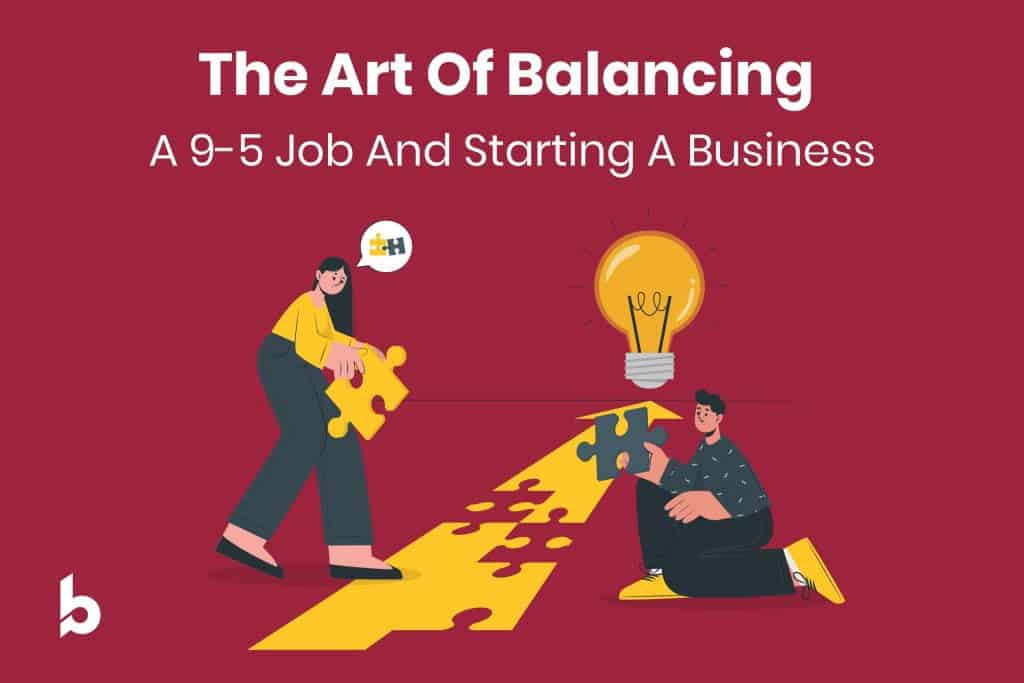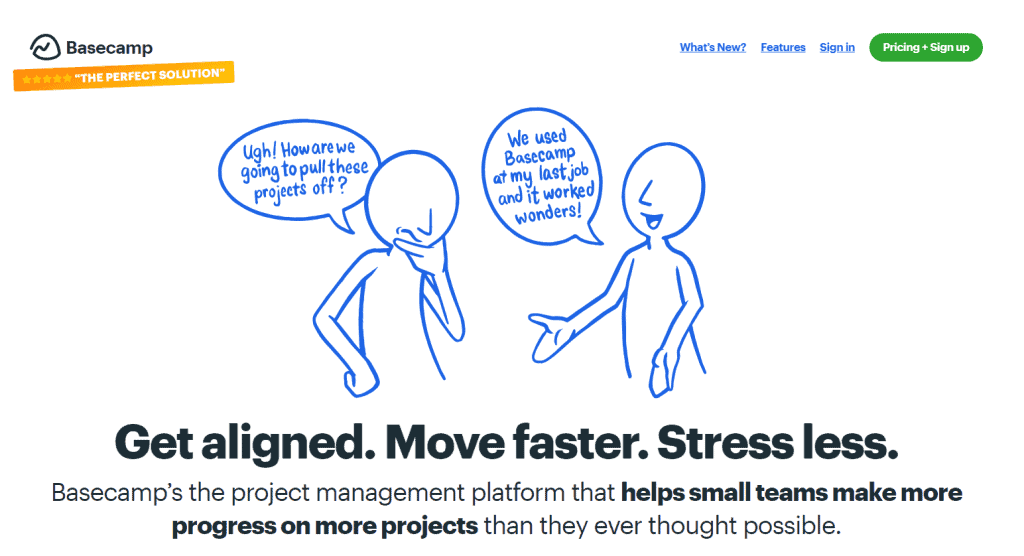The Art of Balancing a 9-5 Job and Starting a Business: Pros, Cons, and How It Fosters Efficiency
You can transform your dream into a profitable venture without leaving your steady paycheck.

There’s an old saying, “To start a business, quit your job, and go all in.” This might make for a great success story, but in reality, many entrepreneurs launch successful businesses while still working their 9-5 jobs.
In fact, you can transform your dream into a profitable venture without leaving your steady paycheck. This strategy comes with its own set of pros and cons. Let’s dig deeper and explore them.
Success Stories: Businesses Born from the Balance of 9-5 Jobs and Entrepreneurial Dreams
There are many notable examples of successful businesses that were initially bootstrapped by founders who were still working other jobs. Here are a few of them:
Spanx by Sara Blakely: Before she became a billionaire, Sara Blakely was selling fax machines door-to-door while she was starting Spanx. Blakely used her $5,000 savings to start the company and didn’t quit her day job until two years in when Oprah Winfrey named Spanx a favorite product.

Mailchimp by Ben Chestnut and Dan Kurzius: Mailchimp, the well-known email marketing service provider, was a side project for nearly six years before its founders decided to focus on it full-time. Chestnut and Kurzius were running a design consulting business when they created Mailchimp. Today, Mailchimp is estimated to be worth billions.
GitHub by Chris Wanstrath, PJ Hyett, and Tom Preston-Werner: GitHub began as a side project in 2007 while the founders were still employed elsewhere. They bootstrapped the company from their own pockets for the first few years before eventually raising funding. In 2018, Microsoft acquired GitHub for $7.5 billion.
Basecamp by Jason Fried and David Heinemeier Hansson: Basecamp, a popular project management tool, was created as a side project within a web design company called 37signals. The founders kept their day jobs for several years before shifting their focus entirely to Basecamp.

These stories underline that not every successful business begins with venture capital and a full-time commitment. Often, they start as ideas nurtured outside working hours, with founders investing their own money and time.
It takes dedication, effective time management, and an ability to systemize and productize your offerings efficiently, but as these examples show, it can certainly be a rewarding path.
Pros of Starting a Business While Working Full-Time
Steady Income: Maintaining your 9-5 job ensures a regular income stream. This financial stability can prove instrumental, particularly in the early stages of your business venture when cash flow can be unpredictable. By providing a consistent source of funds, you can invest in your business without the pressure of external loans or investments. This financial peace of mind also keeps the stress away and allows you to focus more on your budding enterprise.

Risk Management: With a steady paycheck, you’re not entirely dependent on the success of your startup, which can serve as a safety net. If your business doesn’t take off immediately (which is often the case), you still have your job to fall back on. Life is unpredictable; family emergencies, health issues, or other unforeseen circumstances may arise. In such situations, having a reliable job can provide the necessary stability.
Professional Growth and Network Expansion: Your current job not only offers the chance to learn new skills but also serves as a platform to meet smart people and expand your professional network. These connections could become future business partners, mentors, or even clients. Moreover, the insights you gather in your job, including understanding market trends, managing clients, and navigating business challenges, can prove invaluable in your entrepreneurial journey.
Forced Efficiency: The time constraint of a full-time job might seem like a hurdle, but it can also be a blessing in disguise. It forces you to learn how to systemize your tasks and productize your offerings, pushing you to work smarter, not harder. This necessity to manage time efficiently often leads to innovative solutions and strategies that can make your business more scalable and manageable in the long run. Instead of being a hindrance, your 9-5 job can actually be the catalyst for creating a more efficient business model.

Job Stability: A Stepping Stone to Financial Growth and Entrepreneurial Success
Keeping your steady 9-5 job while starting your business can help maintain a good credit score, increasing your eligibility for loans, helping you to tide through personal expenses and also fostering your financial growth as an entrepreneur.
Cons of Starting a Business While Working Full-Time
Time Management: Striking a balance between a full-time job, a start-up business, and personal life can indeed be a herculean task. With only 24 hours in a day, carving out time for each of these significant aspects of life requires stringent and smart time management. The risk of spreading yourself too thin is real, which may lead not only to lower productivity but also increased stress levels and potential burnout.
Slow Growth: With your attention divided between your job and your business, there may be fewer hours in the day to dedicate to your entrepreneurial venture. This could mean slower growth, longer timelines to reach your goals, and a prolonged path to profitability. However, remember that slow growth isn’t necessarily bad growth. It can allow for careful planning, thoughtful decision-making, and steady, sustainable progress.
Managing Stakeholders’ Expectations: Launching a business often involves various stakeholders – partners, investors, customers, and even family members. Not all stakeholders might understand or appreciate your circumstances. They may have expectations of you devoting as much time and energy to the business as they do, leading to potential conflicts. It’s crucial to communicate effectively, managing expectations from the start and maintaining transparency about your commitments.
Conflict of Interest: Depending on your job and the business you’re planning to start, there could be potential conflicts of interest. Your employer might have policies against employees starting their own businesses, especially if they’re in the same industry. Furthermore, you’ll need to ensure you’re not using your employer’s time, resources, or proprietary knowledge to build your business. Always consult your employment contract or HR department to avoid stepping on any legal landmines.
Easy Side Hustles to Start When You Are Still Working
Embarking on your entrepreneurial journey doesn’t mean you have to dive headfirst into an unknown industry. In fact, leveraging your existing skills or passions can be an excellent starting point. There are countless online side hustles that you can begin without quitting your 9-5 job. Here are a few easy ones to consider:
Freelance Writing or Graphic Designing: If you have a knack for writing or graphic design, there’s a high demand for these skills in the online world. Platforms like Upwork and Fiverr can help you connect with clients and start earning.
Starting a Blog or YouTube Channel: If there’s a topic you’re passionate about, why not share your knowledge with the world? Whether it’s cooking, travel, fitness, or tech, there are audiences seeking fresh, engaging content.
Selling Handmade Products or Print-on-Demand Merchandise on Etsy: If you’re a crafty person, selling your creations on Etsy can be a lucrative side hustle. Alternatively, if you have a design idea, print-on-demand services allow you to sell custom merchandise with minimal upfront costs.
Offering Consulting Services: If you’re an expert in your field, offering consulting services can be a rewarding way to share your knowledge and experience. Whether it’s business strategy, social media marketing, or personal coaching, people are willing to pay for expert advice.
Starting an Online Course or Coaching Business: Platforms like Udemy or Teachable allow you to turn your expertise into educational content. You can create courses and sell them to students worldwide.
Each of these side hustles requires time and effort, but they can provide an excellent income source while also allowing you to explore your entrepreneurial aspirations.

Interested in more ways to make money online?
Check out our comprehensive guide,”Ways To Make Money Online – Unlocking 8 Straight Forward & Legitimate Side Hustles” , for even more innovative and profitable ideas.
Don’t let your 9-5 job stop you from nurturing your entrepreneurial dreams. Dive in and start building the future you’ve always envisioned!
Explore More Content
Table of Content







